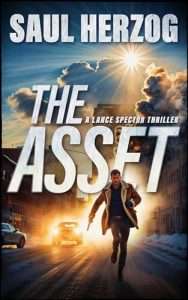
In the realm of Narrative Innovations, readers are invited to explore the captivating boundaries of storytelling, where traditional forms are transformed through unique techniques and experimental narratives. This category showcases works that defy conventions and challenge our perceptions of how stories can unfold. In “The Steel Kiss,” Jeffery Deaver masterfully intertwines suspense with innovative twists that keep readers on the edge of their seats. Similarly, Miranda Cowley Heller’s “The Paper Palace” captivates with its evocative shifts in time and perspective, creating a rich tapestry of emotions. Furthermore, Karen Thompson Walker’s “The Age of Miracles” offers a poignant reflection on the human condition amidst an extraordinary backdrop, compelling us to confront the fragility of life. To round out this intriguing selection, J.G. Ballard’s “The Drowned World” immerses us in a surreal landscape, challenging the very essence of reality. Together, these narratives invite us to reimagine the art of storytelling itself, making them must-reads for any literary enthusiast.
The Steel Kiss by Jeffery Deaver
This thrilling novel takes innovation to a new level with its intricate plot and unexpected twists. Deaver masterfully blends suspense with the unique narrative of a crime drama, keeping readers on the edge of their seats. His ability to weave multiple perspectives into a cohesive story exemplifies an innovative narrative style. Read review

The Coffin Dancer by Jeffery Deaver
Another gripping installment in the Lincoln Rhyme series, this book showcases Deaver’s unique storytelling. The non-linear timeline and intricate plot development challenge traditional storytelling methods, offering a fresh experience that captures the complexities of the human mind and crime. Read review

The Paper Palace by Miranda Cowley Heller
This novel tells a story of love, memory, and the choices we make through a beautifully layered narrative. Heller’s innovative use of flashbacks creates a rich tapestry of emotions and experiences, making it a standout work that explores the interplay between past and present in intimate and compelling ways. Read review

The Survivors by Jane Harper
Harper’s ability to blend past secrets with present day conflicts is a perfect example of innovative storytelling. With its unique structure that intertwines multiple timelines, the narrative unfolds like a mystery, revealing layers of characters and their hidden truths against the backdrop of a stunning Australian landscape. Read review

The 39 Steps by John Buchan
This classic thriller introduces a fast-paced narrative that shaped the spy genre. Buchan’s innovative use of a first-person perspective creates an immersive experience, making the reader feel the urgency and tension of a man on the run. Its influence on subsequent narrative styles is undeniable. Read review

The Ship by Antonia Honeywell
Honeywell crafts a distinct narrative through a post-apocalyptic lens that challenges traditional storytelling. With a focus on survival and human connection amid chaos, her innovative prose and structure reflect the complexities of life and the human spirit, making this an extraordinary read. Read review

The Drowned World by J.G. Ballard
This groundbreaking novel features an experimental narrative style that blurs the lines between reality and imagination. Ballard’s unique approach to constructing a vivid dystopian world forces readers to ponder the psychological impacts of climate change, leaving a lasting impression on the genre. Read review

The Age of Miracles by Karen Thompson Walker
Walker presents a beautifully crafted narrative that explores the fragility of life on Earth as time itself begins to unravel. Her innovative approach to storytelling, using a child’s perspective to navigate profound themes, invites readers into an extraordinary world that feels both intimate and expansive. Read review

The End We Start From by Megan Hunter
In this poignant tale of survival, Hunter’s innovative narrative style employs concise and lyrical prose to convey the urgency of her characters’ plight. The fragmented storytelling reflects the disorientation of a world in crisis, making it a resonant exploration of motherhood, hope, and resilience. Read review

The Dead Lands by Benjamin Percy
This gripping tale of a post-apocalyptic world showcases innovative narrative techniques that enhance its dramatic tension. Percy’s blend of lyrical language and intense character exploration creates a haunting atmosphere that immerses the reader in a richly crafted reality, exemplifying modern narrative style. Read review








